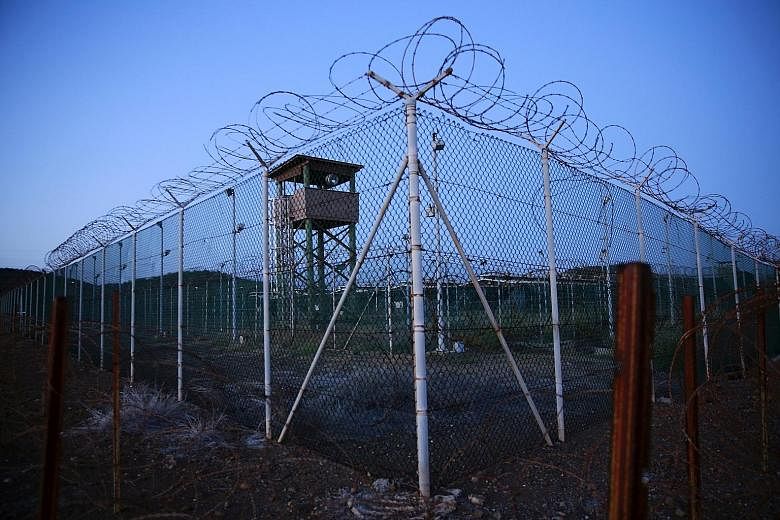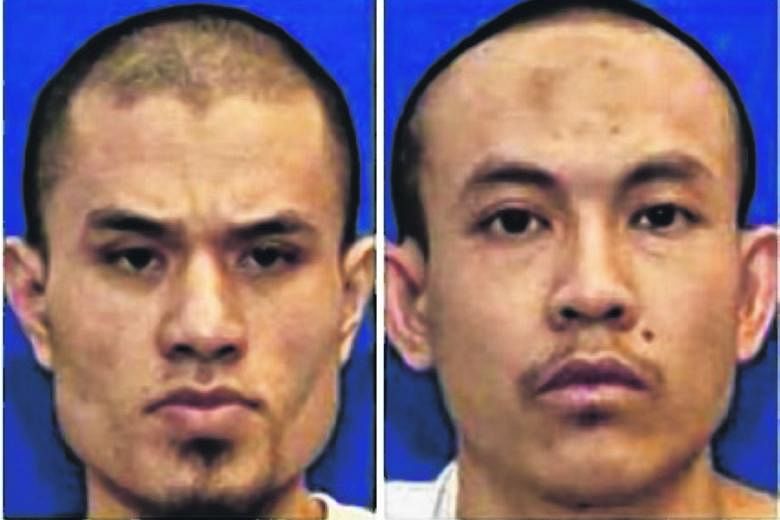WASHINGTON • The Obama administration is negotiating with Malaysia over a deal to repatriate and continue to incarcerate a Guantanamo Bay detainee accused of being an accessory to two major terrorist attacks in Indonesia, officials said.
While challenges remain, the prospective deal is important because it could set up a way to prosecute the detainee and two others, including an Indonesian man best known as Hambali who is accused of masterminding the two attacks.
They are among the 30 men who have been held in indefinite wartime detention without charges for over a decade and who are still deemed too dangerous to release.
The high-level talks also have broader importance for the future of the United States' security cooperation and relationship with Malaysia.
The State and Defence Department envoys for closing Guantanamo, Mr Lee Wolosky and Mr Paul Lewis, and the chief prosecutor of the military commissions system, Brigadier-General Mark Martins, flew to Malaysia and met its deputy prime minister and other top officials on Nov 2 to discuss the potential deal, officials said.
The talks centred on a Malaysian detainee at Guantanamo, Mohd Farik Amin, better known as Zubair. Along with another Malaysian detainee, Mohammed Nazir Lep, who is often called Lillie, Zubair is accused of helping Hambali evade arrest after the 2002 nightclub bombings in Bali and of moving funds later used to finance the 2003 Marriott Hotel bombing in the Indonesian capital Jakarta. (Hambali is also named Riduan Isamuddin.)
The idea is that Zubair would plead guilty to terrorism offences before an American military commission and agree to testify against Lillie and Hambali. If he lives up to that promise and serves about four more years in US custody, Zubair would be repatriated to Malaysia to serve the rest of his sentence.
The Obama administration has declined to comment on the deliberations.
The officials who described them spoke on condition of anonymity. Lawyers for Hambali and Lillie said they had heard rumours of movement but had no details.
Last year, Zubair had been close to agreeing to a similar plea deal in the military commissions system, according to the officials and to his defence lawyer, Mr Mark Denbeaux, who provided The New York Times with a copy of a charge sheet that prosecutors had drafted for those talks.
But the deal collapsed after Malaysia's then attorney-general suggested that the country's law might not permit carrying out a sentence imposed by the tribunal, they said.
There is a new attorney-general in Malaysia, and there appears to be greater high-level political will for the country to take back its two nationals at Guantanamo.
The talks have also explored the possibility of Zubair pleading guilty both to military commission charges and - via video conference link from Cuba - to domestic criminal offences in Malaysia, potentially bolstering Malaysia's domestic legal authority to keep imprisoning him after a transfer.
The Malaysian government wants to get back Lillie as well, and the American government wants to convict him - either through a plea or by trial with help from Zubair's testimony. But the ultimate goal is to use testimony from one or both of them to win a conviction against Hambali.
The Bali bombings killed 202 people, including seven Americans; the Jakarta bombing killed at least 11 people and wounded about 140 more.
Mr Denbeaux said he had not yet discussed any new plea deal with Zubair. But he cautioned that while his client wanted to go home, their hope during the talks last year was that the Malaysian courts might grant him some credit for the 13 years he has spent in custody, despite rules in the military commissions system that bar crediting time served towards a sentence.
"I can't say whether he'd take a deal," Mr Denbeaux said. "He wants to go back. It's just a question of what the terms are. He doesn't want Malaysia to become Guantanamo 2.0."
NYTIMES


